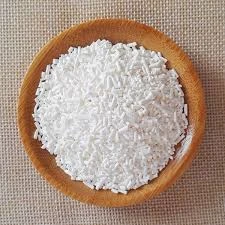
Using Isopropyl Alcohol in Ultrasonic Cleaners for Effective Cleaning Solutions
The Use of Isopropyl Alcohol in Ultrasonic Cleaners
Ultrasonic cleaning is a widely accepted method for cleaning a variety of items quickly and efficiently. It employs high-frequency sound waves to create microscopic bubbles in a cleaning solution, leading to a process known as cavitation. Isopropyl alcohol (IPA) has gained popularity as a cleaning agent in ultrasonic cleaners due to its effectiveness and versatility. This article explores the benefits, applications, and best practices surrounding the use of isopropyl alcohol in ultrasonic cleaning.
What is Isopropyl Alcohol?
Isopropyl alcohol, commonly referred to as rubbing alcohol, is an organic compound with antiseptic and solvent properties. It is typically found in concentrations ranging from 70% to 99%. The 70% solution is often preferred for cleaning and disinfecting purposes, as it can penetrate cell walls more effectively, making it superior for killing bacteria and other pathogens. Due to its rapid evaporation rate, IPA leaves minimal residue behind after cleaning, which is especially beneficial for sensitive electronic components and precision parts.
Benefits of Using Isopropyl Alcohol in Ultrasonic Cleaners
1. Effective Cleaning Isopropyl alcohol is known for its ability to dissolve oils, grease, and other contaminants. When used in an ultrasonic cleaner, IPA can effectively clean a variety of surfaces—metal, glass, plastic, and ceramics—by agitating the cleaning solution at a microscopic level.
2. Fast Evaporation The high evaporation rate of isopropyl alcohol is advantageous for quick drying after the cleaning process. This feature is particularly essential for delicate electronic components, which can be damaged by prolonged exposure to moisture.
3. Versatile Applications IPA is used across various industries—from medical devices and laboratory glassware to electronics and automotive components. This versatility makes isopropyl alcohol a valuable tool in ultrasonic cleaning applications.
4. Antimicrobial Properties As an effective disinfectant, isopropyl alcohol can not only clean surfaces but also help in eliminating harmful bacteria and viruses. This is particularly beneficial in environments where hygiene is paramount, such as hospitals and laboratories.
isopropyl alcohol in ultrasonic cleaner

Best Practices for Using Isopropyl Alcohol in Ultrasonic Cleaners
1. Dilution While 70% isopropyl alcohol is often optimal for cleaning, it is important to refer to the manufacturer’s guidelines for the ultrasonic cleaner. In some cases, further dilution might be necessary to ensure a balanced cavitation effect.
2. Temperature Settings Heating the cleaning solution can enhance the effectiveness of isopropyl alcohol in an ultrasonic cleaner. A temperature range of 50-60°C is typically effective, though operators should ensure that the items being cleaned can withstand such temperatures.
3. Cleaning Time The duration of the cleaning cycle is crucial for achieving the best results. Typically, a cycle of 3 to 10 minutes is sufficient, but items with heavier contamination might require longer exposure.
4. Regular Maintenance Keeping the ultrasonic cleaner and the solution clean is essential for optimal performance. Frequently replace the solvent and clean the tank to prevent residue build-up, ensuring effective cleaning every time.
5. Safety Precautions Isopropyl alcohol is flammable and should be handled with care. Ensure proper ventilation in the cleaning area and avoid using IPA near open flames or high heat sources. Additionally, using appropriate personal protective equipment (PPE) is recommended to minimize exposure.
Conclusion
Isopropyl alcohol is an effective and versatile cleaning agent for ultrasonic cleaners, offering numerous benefits for various applications. Its ability to dissolve contaminants, rapid evaporation, and antimicrobial properties make it an excellent choice for industries requiring meticulous cleanliness. By following best practices, users can maximize the effectiveness of isopropyl alcohol in ultrasonic cleaning, ensuring that components are not only visually clean but also safe and sanitized. As technology continues to evolve, ultrasonic cleaning combined with effective solvents like isopropyl alcohol will remain at the forefront of efficient cleaning solutions.
-
Pure Sodium Dichloroisocyanurate Dihydrate | Powerful DisinfectantNewsAug.29,2025
-
Industrial Chemicals: Quality & Purity for Every IndustryNewsAug.28,2025
-
Nitrile Rubber Honoring Strict Production StandardsNewsAug.22,2025
-
Aspartame Ingredients Honoring Food Safety ValuesNewsAug.22,2025
-
Fertilizer for Balanced Plant NutritionNewsAug.22,2025
-
Cyanide Gold Processing with High Purity AdditivesNewsAug.22,2025
-
Formic Acid in Textile Dyeing ApplicationsNewsAug.22,2025
Hebei Tenger Chemical Technology Co., Ltd. focuses on the chemical industry and is committed to the export service of chemical raw materials.
-

view more DiethanolisopropanolamineIn the ever-growing field of chemical solutions, diethanolisopropanolamine (DEIPA) stands out as a versatile and important compound. Due to its unique chemical structure and properties, DEIPA is of interest to various industries including construction, personal care, and agriculture. -

view more TriisopropanolamineTriisopropanolamine (TIPA) alkanol amine substance, is a kind of alcohol amine compound with amino and alcohol hydroxyl, and because of its molecules contains both amino and hydroxyl. -

view more Tetramethyl Thiuram DisulfideTetramethyl thiuram disulfide, also known as TMTD, is a white to light-yellow powder with a distinct sulfur-like odor. It is soluble in organic solvents such as benzene, acetone, and ethyl acetate, making it highly versatile for use in different formulations. TMTD is known for its excellent vulcanization acceleration properties, which makes it a key ingredient in the production of rubber products. Additionally, it acts as an effective fungicide and bactericide, making it valuable in agricultural applications. Its high purity and stability ensure consistent performance, making it a preferred choice for manufacturers across various industries.





